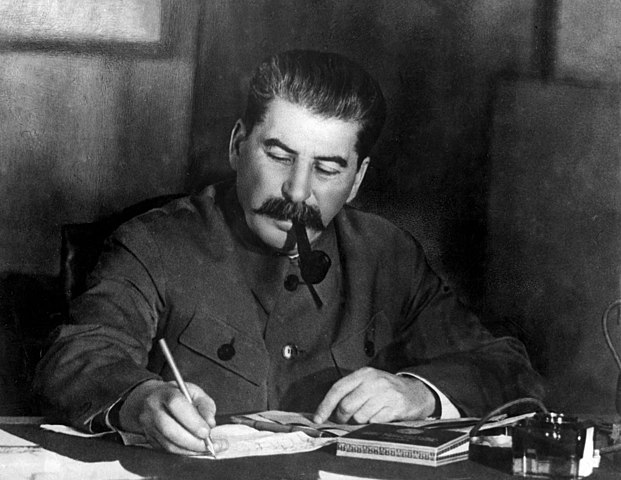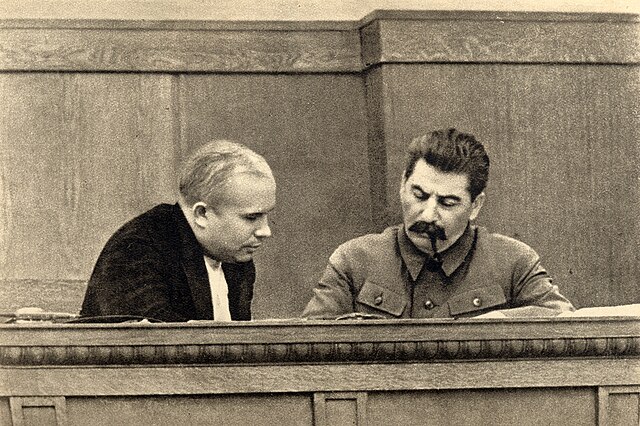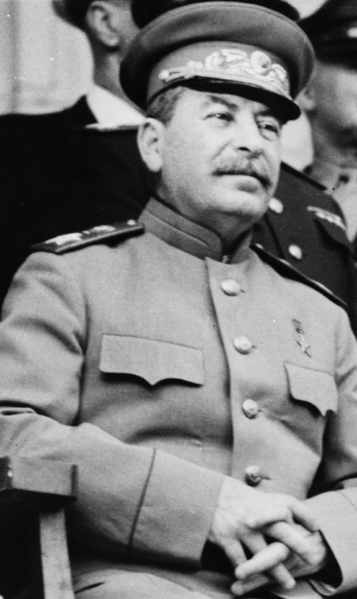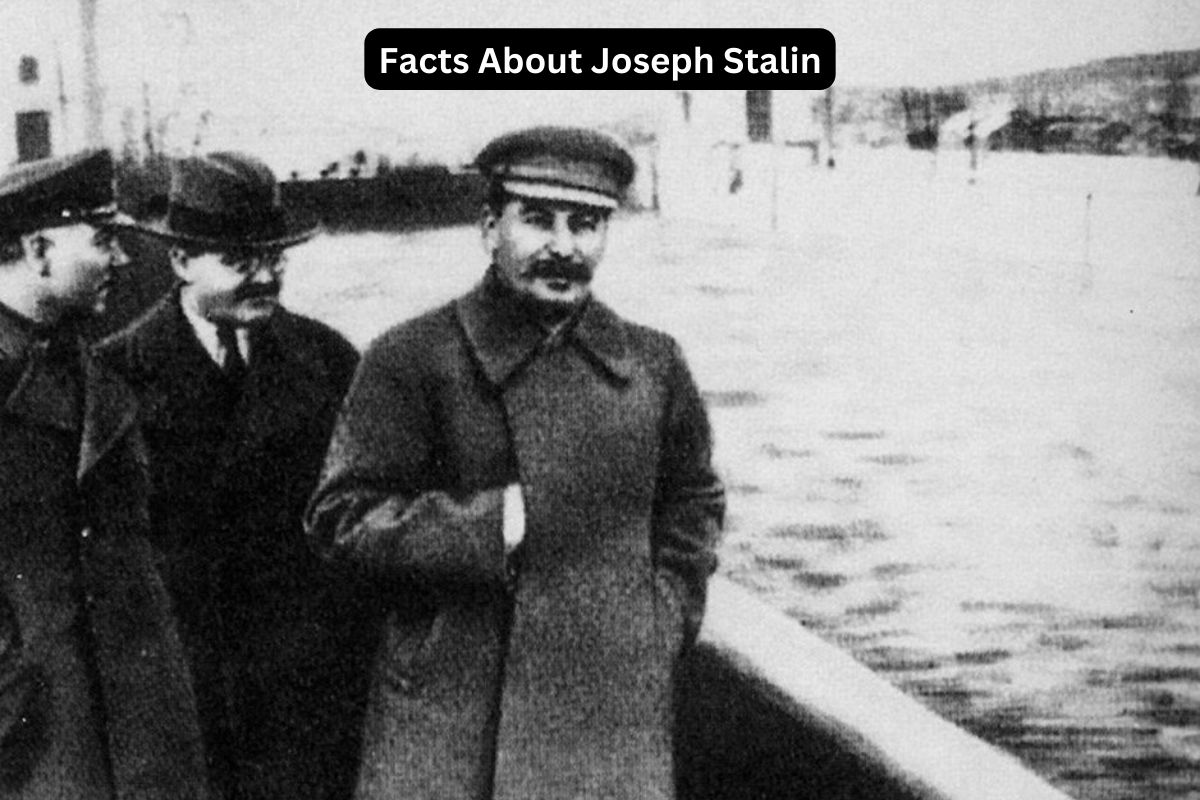In the annals of history, few figures evoke such polarizing reactions as Joseph Stalin, the enigmatic leader who shaped the Soviet Union and left an indelible mark on the 20th century.
From his humble beginnings in the Georgian town of Gori to his ascent as the undisputed ruler of one of the world’s superpowers, Stalin’s journey is as fascinating as it is troubling.
In this article, we delve into the complex legacy of Stalin, examining his rise to power, his ruthless policies, and his enduring impact on global politics.
Through a nuanced exploration of his achievements and atrocities, we seek to unravel the enigma of Joseph Stalin and understand the profound lessons his legacy imparts on the modern world.
Joseph Stalin Facts
1. Born on December 18, 1878, in Gori, Georgia
Joseph Stalin was born as Ioseb Besarionis dze Jughashvili to a relatively poor family in the town of Gori, which was then part of the Russian Empire.
His early life was marked by poverty and hardship, and he faced several health issues, including smallpox, which left scars on his face.

2. Became leader of the Soviet Union in the mid-1920s
Stalin rose to power within the Bolshevik Party following the Russian Revolution of 1917.
After Lenin’s death in 1924, Stalin outmaneuvered his rivals, including Leon Trotsky, to become the undisputed leader of the Soviet Union by the mid-1920s.
He consolidated his authority through purges and the elimination of political opponents.
3. Implemented Five-Year Plans for rapid industrialization
Stalin launched a series of ambitious economic initiatives known as the Five-Year Plans in the late 1920s. These plans aimed to transform the Soviet Union from an agrarian society into an industrial powerhouse within a short period.
Also Read: Timeline of Joseph Stalin
The plans involved state control of the economy, forced collectivization of agriculture, and the construction of large-scale industrial projects. While they led to significant industrial growth, they also resulted in widespread hardship, including famine and forced labor.
4. Played a significant role in the defeat of Nazi Germany during World War II
Stalin’s leadership during World War II was crucial in the Allied victory against Nazi Germany.
Despite initial setbacks, such as the German invasion of the Soviet Union in 1941, Stalin’s strategic decisions, including the defense of Stalingrad and the successful counter-offensive at the Battle of Kursk, helped turn the tide of the war in favor of the Allies.
The Soviet Union suffered immense human and material losses during the conflict, but its resilience and determination under Stalin’s leadership ultimately contributed to the defeat of the Axis powers.

5. Established a totalitarian regime marked by censorship and repression
Stalin’s regime was characterized by totalitarian control over every aspect of Soviet society. He centralized power in the hands of the Communist Party and ruthlessly eliminated any opposition or dissent.
Censorship was pervasive, with strict control over media, literature, and the arts. Political opponents, perceived enemies, and even those suspected of disloyalty were subjected to purges, show trials, and executions.
Also Read: Karl Marx Accomplishments
The secret police, notably the NKVD, operated with impunity, carrying out mass arrests, forced labor, and executions of millions of people. Fear and surveillance were pervasive, creating an atmosphere of paranoia and distrust throughout the Soviet Union.
6. Fostered a personality cult around himself
Stalin cultivated a cult of personality that glorified him as a wise and infallible leader. His image was omnipresent in propaganda posters, literature, and art, portraying him as the embodiment of Soviet strength and wisdom.
Stalin was elevated to a near-mythical status, with his words and actions celebrated as gospel. Songs, poems, and even children’s books were dedicated to praising his leadership and achievements.
The cult of Stalin served to reinforce his authority and control over the Soviet populace, while also stifling dissent and critical thinking. Those who dared to question or criticize Stalin were harshly punished, reinforcing the perception of his unquestionable authority.

7. Controlled Eastern Europe after World War II
In the aftermath of World War II, Stalin extended Soviet influence over Eastern Europe, effectively establishing a sphere of control known as the Eastern Bloc.
Through a combination of military occupation, political manipulation, and the installation of communist governments loyal to Moscow, Stalin solidified Soviet dominance over countries such as Poland, Czechoslovakia, Hungary, Romania, Bulgaria, and East Germany.
This led to the division of Europe into Eastern and Western blocs, setting the stage for the Cold War rivalry between the Soviet Union and the Western powers.
8. Died on March 5, 1953
Joseph Stalin’s death on March 5, 1953, marked the end of an era in Soviet history. His passing triggered a period of uncertainty and power struggle within the Soviet leadership as various factions vied for control.
The transition of power eventually led to the rise of Nikita Khrushchev as Stalin’s successor and a shift in Soviet policies, including a partial thawing of the repressive atmosphere that had characterized Stalin’s rule.
9. Left a complex and controversial legacy
Stalin’s legacy is highly contentious and subject to debate. While some view him as a ruthless dictator responsible for egregious human rights abuses, mass repression, and millions of deaths, others see him as a strong and decisive leader who modernized the Soviet Union and played a pivotal role in defeating Nazi Germany.
His policies, including rapid industrialization, collectivization, and the establishment of a superpower status for the Soviet Union, left a lasting impact on the country and shaped the course of 20th-century history.
10. Impactful figure in 20th-century history
Regardless of differing interpretations, Joseph Stalin remains one of the most impactful figures of the 20th century. His authoritarian rule, ideological fervor, and geopolitical ambitions significantly shaped global politics, contributing to the rise of the Cold War and the division of the world into rival blocs.
The consequences of his actions continue to reverberate through history, influencing perceptions of communism, totalitarianism, and the nature of state power. Stalin’s legacy serves as a cautionary tale about the dangers of unchecked authoritarianism and the importance of safeguarding individual rights and democratic institutions.
